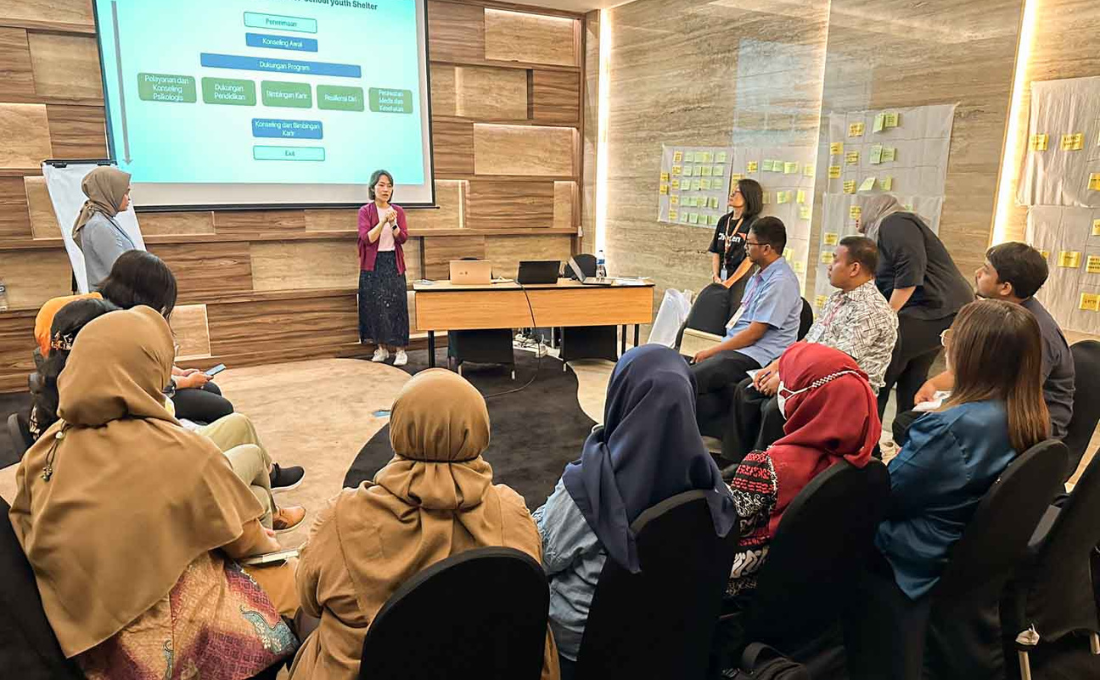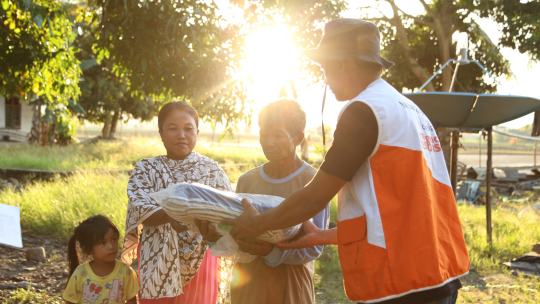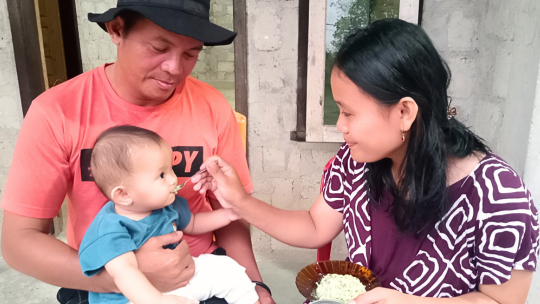Preparing Resilient and Skilled Indonesian Youth

In mid-July 2023, Wahana Visi Indonesia had the opportunity to be a resource person for the Training of Trainers Implementation Plan for the project "Enhancing Social Rehabilitation Support for the Vulnerable Youth in Indonesia" (STARLET). The project targets social workers as well as teachers and instructors from the Social Institutions assisted by the Jakarta Social Service and the Ministry of Social Affairs. These social workers, teachers and instructors intensively assist children and youth with social problems who are in institutions. In order for the assistance provided to be of higher quality, the capacity of social workers must also continue to develop so that every child and adolescent is increasingly ready to compete and work in the world of work.
At this training, Prof. Frieda Marpaung as a resource person from WVI shared insights with social workers about child and adolescent development. Prof. Frieda explained the importance of understanding the stages of growth and problems faced by adolescents for social workers. The growth in question is not only physical but also mental and social. "With a clear understanding of the growth and problems of adolescents, the assistants can develop programs that suit the needs and answer the challenges faced by adolescents," said Prof. Frieda.
Prof. Frieda's session was complemented by a presentation on the four main skills and proficiencies that adolescents need to have in addition to academic education. Because competition in the world of work today does not solely assess academic ability, the adolescents assisted at the orphanage also need to obtain capacity building in terms of:
-
Personal empowerment, adolescents understand the importance of self-development, are able to communicate effectively, and are resilient in facing competition or life challenges.
-
Learning skills, adolescents are skilled in thinking creatively, critically, and finding solutions to problems.
-
Employability, adolescents are prepared to become independent, disciplined, and entrepreneurial workers.
-
Active citizen, teenagers as Indonesian citizens can also participate in the life of the country, respect differences, and be able to empathize.
"After attending this training, I have a better understanding of the aspects that need to be considered in assisting adolescents in institutions, especially around youth education. I understand the importance of implementing aspects related to Youth Education in developing and improving the character and independence of adolescents in orphanages. So that later these adolescents can move towards empowerment and restoration of psychosocial functions," said Corry, a social worker who participated in the training. "I also better understand the importance of providing facilities, services and social rehabilitation with child-friendly and child-protective standards. In the future, I hope that modules on this can be developed according to the needs of fostered adolescents," she continued.
Another important aspect of mentoring vulnerable youth is protection. Therefore, WVI also provides special sessions related to child protection. Social workers need to have a good understanding of this in order to develop a protection mechanism in social centers. In this session, in addition to explaining the good practices that WVI has done for child protection, WVI also invited two resource persons from other organizations, namely, the Good Shepherd Foundation and representatives of the Special Condition Child Protection Division, Ministry of Women's Empowerment and Child Protection. These two resource persons shared insights on Child Friendly Institutions. Specifically on how to develop and challenges in implementing child protection in an institution.
The 5-day training was attended by approximately 50 social workers, teachers, or instructors. Participants were divided into three special classes and closed by the Head of the Social Welfare Development Division, Dewi Aryati Ningrum. After attending this training, the social workers will develop a schedule and work program that is compiled in the Annual Plan.
Writer: Niken Puspita (Project Manager)
Editor: Mariana Kurniawati (Communication Executive)



